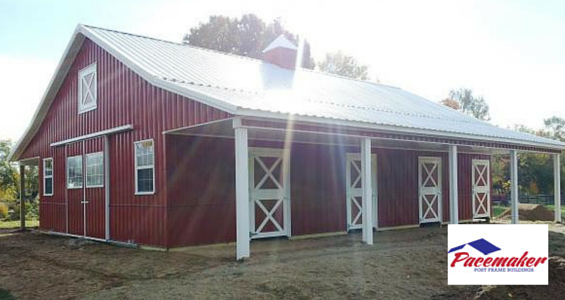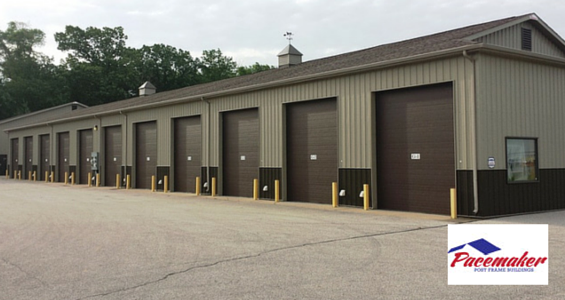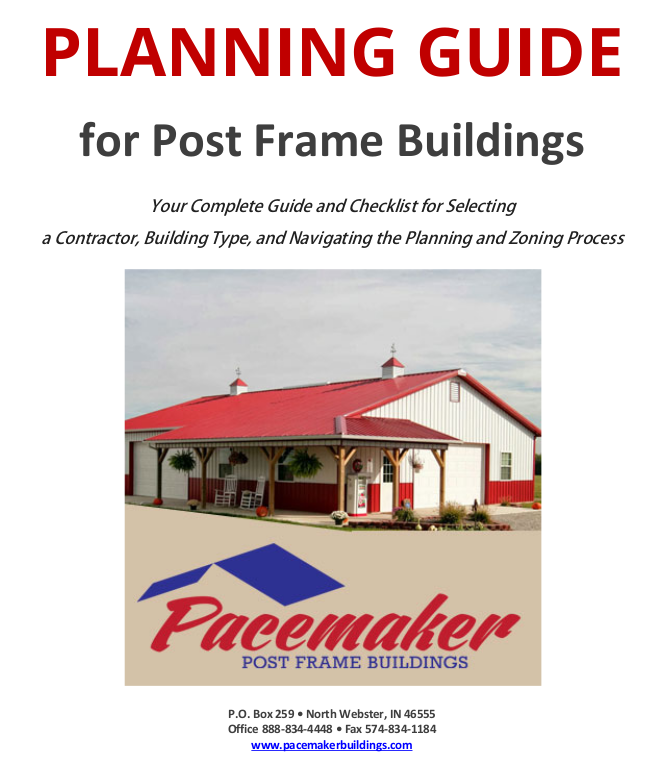Construction can be costly. Many companies and individuals do not have adequate cash to cover the entire cost of a project. So planning for your new building is very important from a financial perspective.
Often times selecting the proper financing can be challenging. Financing is available in many forms for maximum appeal to a wide range of borrowers.
In this post, we’ll outline a number of the options that can help you in your planning for a post-frame building project.
Construction Loans
Construction loans are a short term form of financing that is provided before construction begins to provide funding while your project is being built.
Under normal circumstances, this type of loan requires getting an appraisal of the land and using a certain percentage of the projected building cost to determine the overall loan to value that the lender will accommodate.
Once the construction is complete, the short term construction loan is typically consolidated into a long term real estate mortgages.
Both businesses and private individuals interested in a construction loan need to have good credit histories, in addition to realistic and well-thought-out plans, budgets, and timetables.
Typically, would-be borrowers should expect higher interest rates as well as fairly strict loan conditions for a construction loan when compared to a conventional mortgage.
Short loan terms are particularly common, with one year timeframes being the maximum in most cases.
Please note that “construction loan” is something of a catch-all term. Borrowers should not expect all construction loans to be equal. For example,
FHA-approved lenders are occasionally willing to provide something called construction-to-permanent loans to low and mid-income consumers interested in building rather than purchasing their homes.
These loans tend to have lenient loan conditions, which is not expected of a construction loan intended to finance the building of commercial real estate properties.
Non-Construction Loans
For smaller buildings: businesses and private individuals might be able to use loans with no restrictions or covenants on how the borrowed funds are to be spent.
These loans typically require one to put up collateral such as a valued fixed asset, equipment, or vehicle.
For example, putting up this type of collateral often allows a lender to approve and provide funding at a competitive rate and term.
Lease Financing your Building Project
For businesses leasing is a viable type of funding to construct your project. The advantages that leasing can provide depends on your businesses need.
Lease financing can provide accelerated tax deductions if structured correctly which will save the business money by reducing taxable income in the years that it is needed.
Lease financing can also provide flexible repayment terms to align with your businesses cash flow stream which often times can help reduce your operating funds.
Leasing is typically considered by primary banks as a business expense and is therefore considered “off balance sheet” funding and likely will not affect your primary lenders loan covenants that are in place.
Other Sources of Funding
Both businesses and private individuals have access to other sources of funding. For example, private individuals might be able to borrow from their friends and family members.
Similarly, businesses can solicit investment by either bringing in new partners or selling shares in their capital stock.
One new form of loan offer is in the online realm. Online business sources such as Lending Club are a new opportunity for businesses. These are loans managed by lending club and the capital is provided by individuals who invest in the Lending Club model for an expected return.
The rates are competitive and the key is finding repayment lengths that are acceptable for your company.
As an experienced and well-established builder, we are committed to ensuring 100% customer satisfaction. Please feel free to contact us about building a post frame building or construction financing.
As you begin to plan your post-frame building project you can benefit from our free planning guide.
DOWNLOAD NOW >>




